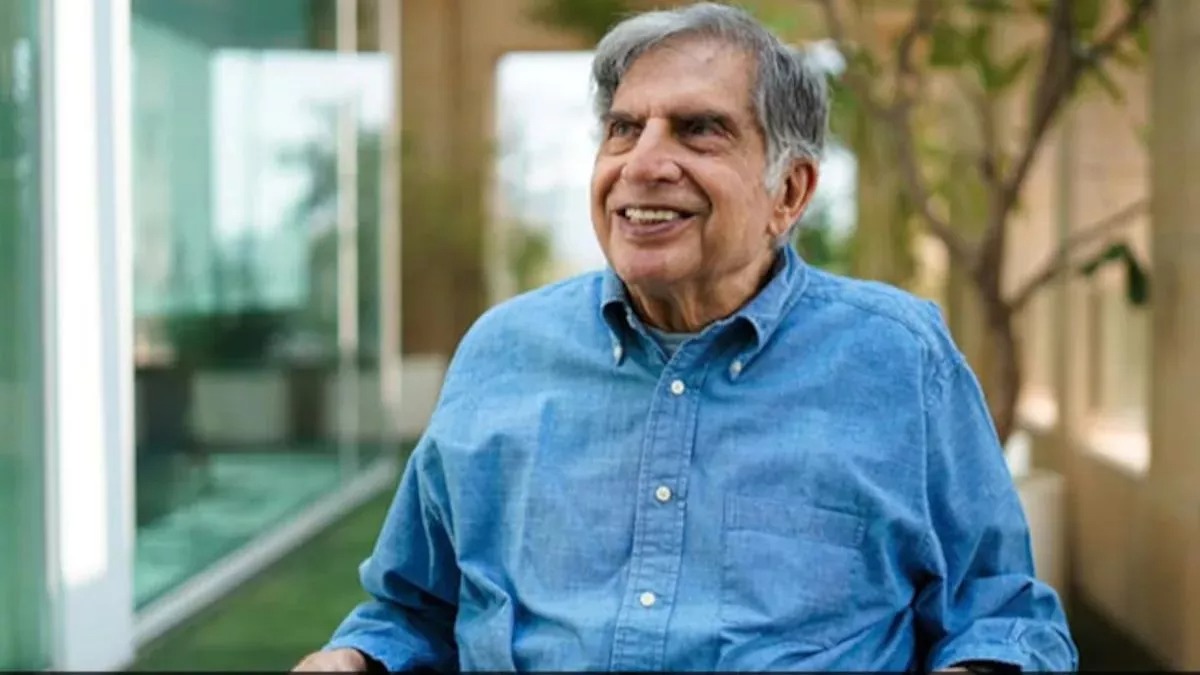
New Delhi: Padma Vibhushan Ratan Naval Tata was one of the world's most influential industrialists, yet he never figured in any list of billionaires. He controlled more than 30 companies that operated in over 100 countries across six continents, yet he led a simple life. He was a corporate tycoon who was considered a 'secular saint' with qualities of decency and honesty.
He received his degree in architecture in 1962.
Ratan Tata joined the family firm after earning a BS in architecture from Cornell University in New York in 1962. He initially worked on the shop floor to gain experience across the Tata Group's businesses and was named director-in-charge of one of them, the National Radio and Electronics Company, in 1971.
A decade later in 1991, he took over as chairman of Tata Industries, replacing his uncle JRD, who had been in charge for more than half a century. That was the year India saw its economy take off and Tata soon transformed the group into a global powerhouse with operations ranging from salt to steel, cars to software, power plants to airlines.
He was the chairman of Tata Sons for two decades
He was the chairman of Tata Sons, the main holding company of the group, for more than two decades. During this period, the group expanded considerably. In the year 2000, it acquired London-based Tetley Tea for US$431.3 million.
In 2004, it bought the truck-making operations of South Korea's Daewoo Motors for $102 billion, paid $11.3 billion to buy Anglo-Dutch steelmaker Corus Group and spent $2.3 billion to purchase British car brands Jaguar and Land Rover from Ford Motor Co.
Apart from being one of India's most successful business tycoons, he was also known for his philanthropic activities. In the 1980s, he started the Aga Khan Hospital and Medical College project. After being appointed as the chairman of Tata Sons in 1991, he took forward the Tata Trusts established by his great grandfather Jamsetji and established excellent institutions like the Tata Institute of Social Sciences.
Ratan Tata is also not untouched by controversies
Ratan Tata has not been immune to controversies. The group was not directly named in the 2008 scam involving the allocation of second-generation telecom licences, but his name cropped up in leaked recordings of alleged phone calls to lobbyist Nira Radia. He was not accused of any wrongdoing.
In December 2012, he handed over control of Tata Sons to Cyrus Mistry, who was his deputy at the time. But the owners had problems with the functioning of a non-Tata family member and so Mistry was removed in October 2016.
It is said that Ratan Tata was among those shareholders who disagreed with Mistry on several projects. This included Mistry's decision to shut down the loss-making Nano car project.
Invested in Paytm, Snapdeal, Lenskart
After Mistry's ouster, Ratan Tata served for a brief period as interim chairman from October 2016 and then retired when Natarajan Chandrasekaran was appointed chairman of the Tata Group in January 2017. He then helped young entrepreneurs, investing in new-age technology-driven start-ups.
He has invested in over 30 start-ups, including Ola Electric, Paytm, Snapdeal, Lenskart and Zivame, in his personal capacity and some through his investment company RNT Capital Advisors.
--Advertisement--

 Priya
Priya Share
Share



